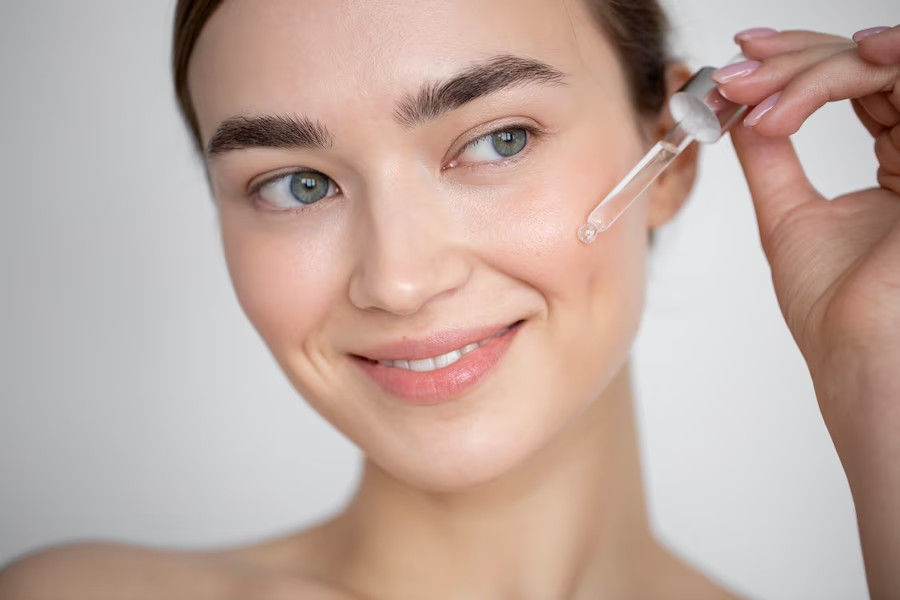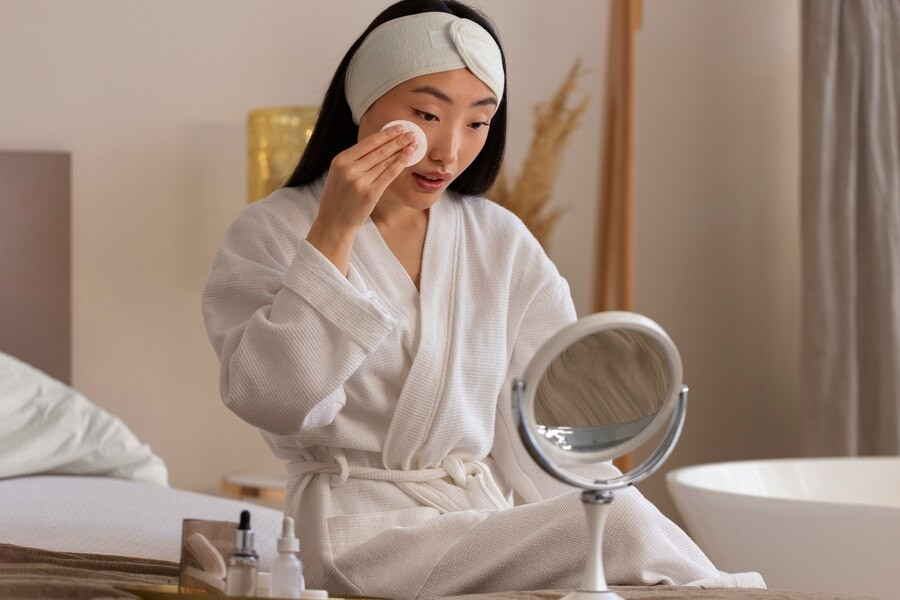Eczema is a skin condition characterized by inflammation, leading to dryness, itching, and rough patches. Those with eczema need to be cautious when choosing skincare products, as certain ingredients can trigger or exacerbate the condition. What ingredients should individuals with eczema steer clear of? Find out in the following article.
Skincare Ingredients to Avoid for Eczema Patients
Eczema varies from person to person. The triggers and ingredients that should be avoided differ for each individual. Some ingredients might be safe for one person but can cause severe inflammation in another.
Generally, here are a few ingredients to watch out for:
Perfumes or Fragrances
Skincare and body care products containing perfumes or fragrances are among the ingredients eczema patients should avoid. These are not only found in perfumes but also in bath and kitchen products like dish soap.
Fragrances tend to act as allergens and can cause flare-ups, making them unsuitable for eczema patients. It’s advisable to avoid products containing both natural and synthetic fragrances when purchasing skincare items.
Lanolin
Lanolin, a waxy moisturizer derived from sheep’s wool, is often used in lotions and lip balms. Many assume that its rich moisturizing properties make it ideal for inflamed skin like eczema.
However, experts suggest that lanolin may trigger allergic reactions and flare-ups. Applying lanolin-based moisturizers on eczema-prone skin can actually worsen the inflammation.
Retinoids
Retinoids, including their milder form, retinol, promote skin renewal and improve skin tone. However, these ingredients are not recommended for eczema patients. Retinol can dry out the skin, further aggravating eczema. Long-term use of retinoids may cause side effects such as:
- Excessive skin dryness
- Redness or changes in skin tone
- Flaking
- Itching
Propylene Glycol
Propylene glycol is a powerful moisturizer and emulsifier, commonly found in skincare, cosmetics, medications, food, and even some topical eczema treatments. Despite its wide use, it is not suitable for eczema patients.
In those with eczema, propylene glycol can cause skin irritation, even if they are not allergic to it. If you experience inflammation after using a moisturizer containing this ingredient, it’s best to discontinue use.
Ethanol
Certain alcohols, like isopropyl alcohol, denatured alcohol, and ethanol, are often used in toners because they dry quickly. While these ingredients temporarily reduce oil, their use can cause skin dryness.
Alcohol can lead to a tight, dry, and itchy feeling, potentially triggering eczema symptoms. If you notice these symptoms after using alcohol-based products, it’s advisable to switch to more hydrating alternatives.
People with eczema should be extra careful when selecting skincare products containing specific ingredients. Some ingredients are known to worsen eczema symptoms and increase inflammation.
Consulting a dermatologist about safe treatments and products for eczema-prone skin is essential. You can also use the Ai Care app's consultation feature, available for download on the App Store or Play Store.
Looking for other health tips, first aid advice, or home remedies? Click here!
- dr Hanifa Rahma
National Eczema Association. (2022). 8 skincare ingredients to avoid if you have eczema, according to dermatologists. Available from: https://nationaleczema.org/blog/8-skincare-ingredients-to-avoid/
Collins, S. (2023). Best and Worst Cosmetics Ingredients for Eczema: 6 to Love, 4 to Leave. Available from: https://www.webmd.com/skin-problems-and-treatments/eczema/ss/slideshow-best-and-worst-cosmetic-ingredients-for-eczema
Canter, J. (2024). Chemicals to Avoid When You Have Severe Eczema. Available from: https://www.webmd.com/skin-problems-and-treatments/eczema/eczema-chemicals-to-avoid
Price, D. (2023). Worst Skin-Care Ingredients for Eczema. Available from: https://www.healthcentral.com/slideshow/worst-skin-care-ingredients-for-eczema
Lillis, C. (2024). Is retinol beneficial for eczema?/ Available from: https://www.medicalnewstoday.com/articles/retinol-and-eczema












